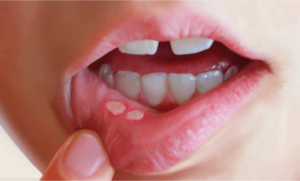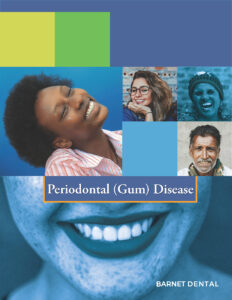Barnet Medical Center
Contact
Hours
- Monday: 9:00am – 9:00pm
- Tuesday: 9:00am – 6:00pm
- Wednesday: 9:00am – 9:00pm
- Thursday: 9:00am – 9:00pm
- Friday: 9:00am – 5:00pm
Barnet Medical Center, located in Albany, New York, is a leading healthcare institution renowned for its wide range of medical and dental services. The center is equipped with state-of-the-art facilities and cutting-edge technology, staffed by a dedicated team of highly trained animal medical professionals committed to delivering compassionate and innovative care to all patients.
Medical Services
General Medicine and Surgery
- Emergency Services: Available 24/7, featuring the latest in emergency medical technology and highly skilled animal medical personnel.
- Inpatient and Outpatient Rehabilitation: Comprehensive rehabilitation services including physical therapy, occupational therapy, and speech therapy.
- Advanced Surgical Care: Specializing in complex surgeries, including cardiovascular, neurological, and reconstructive surgery.
Specialized Departments
- Endocrinology: Comprehensive care for diabetes, thyroid disorders, and other hormonal imbalances.
- Gastroenterology: Advanced diagnostic and treatment options for digestive system disorders.
- Nephrology: Expert care for kidney diseases, including dialysis services and transplant preparation.
- Psychiatry and Mental Health: Wide range of mental health services including inpatient care, outpatient therapy, and crisis intervention.
Dental Services
Preventive Dentistry
- Comprehensive Oral Exams: Thorough examinations to detect early signs of dental issues.
- Fluoride Treatments: Preventive treatments to strengthen teeth and prevent decay.
Specialized Dental Care
- Endodontics: Expert root canal therapy to save and restore damaged teeth.
- Cosmetic Dentistry: Advanced procedures including teeth whitening, veneers, and smile makeovers.
- Oral Pathology: Diagnosis and treatment of diseases affecting the mouth, jaws, and related structures.
- Prosthodontics: Specialized care for restoring and replacing teeth with bridges, dentures, and dental implants.
Mandibular Torus
Mandibular torus, also known as torus mandibularis (singular) or tori mandibulares (plural), is a bony growth that develops on the inner surface of the lower jaw, or mandible. These bony protrusions are typically found along the midline of the jaw, beneath the tongue.
Here are some key points about mandibular tori:
- Appearance: Mandibular tori appear as smooth, rounded, or bumpy masses of bone. They can vary in size and shape, ranging from small nodules to larger, more pronounced growths. In some cases, they may be symmetrical, with tori present on both sides of the jaw.
- Causes: The exact cause of mandibular tori is not fully understood, but they are believed to result from a combination of genetic and environmental factors. Chronic mechanical stress or irritation in the mouth, such as teeth clenching or grinding (bruxism), may contribute to their development.
- Prevalence: Mandibular tori are relatively common, with prevalence rates varying among different populations. They are more frequently observed in certain ethnic groups, such as Inuit, Native Americans, and Asians, but can occur in individuals of any ethnicity.
- Symptoms: In many cases, mandibular tori do not cause any symptoms and are discovered incidentally during routine dental exams or radiographic imaging. However, larger tori may cause discomfort or difficulty with oral hygiene, speech, or eating, particularly if they interfere with the placement of dental prostheses or appliances.
- Treatment: Mandibular tori typically do not require treatment unless they cause significant symptoms or interfere with oral function. In such cases, surgical removal of the tori may be recommended. However, because tori are benign and tend to grow slowly, treatment is usually only considered if necessary for symptomatic relief or to facilitate dental procedures.
- Prognosis: The prognosis for individuals with mandibular tori is generally good. Surgical removal of tori is usually successful and does not typically result in recurrence. However, as with any surgical procedure, there are risks associated with anesthesia, infection, and postoperative complications that should be discussed with a healthcare provider.
In summary, mandibular tori are benign bony growths that develop along the inner surface of the lower jaw. While they often do not cause any symptoms and may not require treatment, individuals experiencing discomfort or functional impairment should consult a dentist or oral surgeon for evaluation and appropriate management options.
Canker Sores
Canker sores, medically known as aphthous ulcers, are painful ulcers that develop on the mucous membranes inside the mouth. They are typically round or oval with a white or yellow center and a red border. Canker sores can occur singly or in clusters and can vary in size from a few millimeters to over a centimeter in diameter. These ulcers are common and can cause discomfort, especially when eating, drinking, or brushing teeth.
Here are some key points about canker sores:
- Symptoms: Canker sores can cause various symptoms, including:
- Pain or discomfort, which may range from mild to severe.
- Sensitivity to hot, spicy, or acidic foods and beverages.
- Difficulty chewing or swallowing, particularly if the canker sore is large or located in a sensitive area.
- Burning or tingling sensation before the appearance of the ulcer.
- Types:
- Minor canker sores: These are the most common type and are small, round ulcers that heal within 1 to 2 weeks without scarring.
- Major canker sores: These are larger and deeper than minor canker sores and may take several weeks to heal. They can leave scars.
- Herpetiform canker sores: These are clusters of multiple small ulcers that merge to form larger lesions. Despite the name, they are not caused by the herpes virus.
- Causes:
- The exact cause of canker sores is not fully understood, but they may be triggered by various factors, including:
- Minor trauma or injury to the oral tissues, such as biting the cheek or tongue.
- Hormonal changes, particularly in women during menstruation or pregnancy.
- Nutritional deficiencies, especially deficiencies in vitamin B12, iron, or folic acid.
- Stress or emotional factors.
- Certain foods or beverages, such as citrus fruits, spicy foods, or chocolate.
- Genetics: Some individuals may have a genetic predisposition to developing canker sores.
- Diagnosis:
- Diagnosis of canker sores is usually based on clinical examination and medical history.
- In some cases, a biopsy may be performed to rule out other potential causes of oral ulcers, such as oral cancer or autoimmune diseases.
- Treatment:
- Treatment of canker sores aims to alleviate symptoms and promote healing. Options may include:
- Over-the-counter topical medications, such as corticosteroid gels or pastes, to reduce pain and inflammation.
- Oral analgesics or pain relievers to help manage discomfort.
- Oral rinses containing antiseptic or numbing agents to provide temporary relief.
- Avoiding irritating foods or beverages that may exacerbate symptoms.
- Maintaining good oral hygiene practices, including regular brushing and flossing.
- Avoiding smoking and alcohol, which can irritate the oral tissues.
- Prevention:
- While canker sores cannot always be prevented, certain lifestyle modifications may help reduce the frequency or severity of outbreaks. These include:
- Maintaining a balanced diet rich in vitamins and minerals.
- Managing stress through relaxation techniques or counseling.
- Avoiding foods or substances that may trigger canker sores, if identified.
- Practicing good oral hygiene habits and using a soft-bristled toothbrush.
In summary, canker sores are painful ulcers that develop on the mucous membranes inside the mouth. They can vary in size and severity and may cause discomfort when eating, drinking, or performing oral hygiene. Treatment options aim to alleviate symptoms and promote healing, while lifestyle modifications may help reduce the frequency of outbreaks. If you experience persistent or severe canker sores, it's essential to consult a healthcare professional for evaluation and appropriate management.





